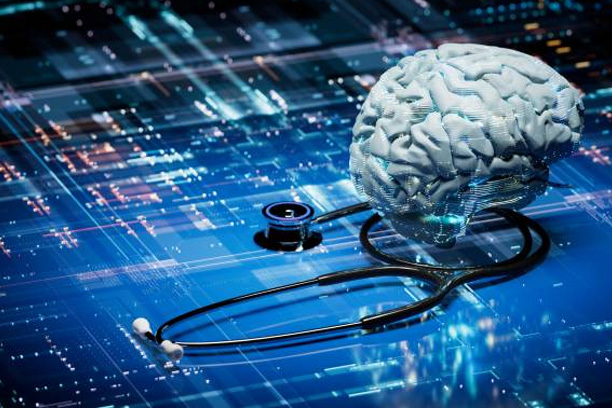The healthcare industry is undergoing a major transformation, driven by technological advancements and the increasing role of IT services. From improving patient care to enhancing operational efficiency, IT is playing a central role in reshaping the healthcare landscape. Here’s a look at how IT services are changing the face of healthcare.
1. Telemedicine and Remote Patient Monitoring
Telemedicine has revolutionized how healthcare providers interact with patients. IT services enable healthcare professionals to conduct virtual consultations, which has proven especially valuable during the COVID-19 pandemic and in rural areas with limited access to healthcare facilities.
Remote patient monitoring (RPM) also leverages IT to collect patient data through devices like wearables and mobile apps. This data can then be analyzed to track health conditions in real-time, reducing the need for frequent in-person visits and improving chronic disease management.
2. Electronic Health Records (EHR)
Gone are the days of paper-based patient records. Electronic Health Records (EHR) are now a cornerstone of modern healthcare, allowing patient data to be securely stored, shared, and accessed in real time by healthcare providers. This shift has dramatically improved the coordination of care, reducing errors caused by illegible handwriting or lost records.
With EHR systems, healthcare providers can offer more personalized care by accessing a patient’s medical history, allergies, medications, and more, all in one place. Additionally, EHRs help streamline billing, scheduling, and administrative tasks.
3. AI and Machine Learning for Diagnosis and Treatment
Artificial Intelligence (AI) and Machine Learning (ML) are revolutionizing how medical professionals diagnose and treat diseases. From analyzing medical images for early detection of cancer to predicting patient outcomes based on historical data, AI is becoming an indispensable tool in healthcare.
Machine learning algorithms can sift through vast amounts of patient data to identify patterns that would be impossible for a human doctor to detect, leading to faster and more accurate diagnoses. In the future, these technologies could even personalize treatment plans based on an individual’s genetic makeup.
4. Blockchain for Secure Health Data Sharing
Security and privacy are top priorities when dealing with sensitive health information. Blockchain technology offers a solution by providing a secure, transparent way to store and share health data across platforms.
Blockchain can help ensure that patient data is immutable and traceable, reducing the risk of unauthorized access or tampering. This is particularly valuable in scenarios like data sharing between hospitals, insurance companies, and other healthcare providers, where security and trust are critical.
5. Healthcare Analytics and Predictive Insights
Data analytics is transforming healthcare by enabling more informed decision-making. IT services provide the infrastructure needed to collect and analyze healthcare data, turning raw numbers into valuable insights. This has led to the rise of predictive analytics, which helps healthcare providers predict patient outcomes, optimize treatment plans, and reduce costs.
For instance, predictive models can forecast patient admissions or the likelihood of complications in certain conditions, allowing healthcare systems to proactively allocate resources and improve care delivery.
6. Cloud Computing for Scalability and Flexibility
The healthcare sector is increasingly relying on cloud computing to store and process large volumes of data. Cloud platforms offer scalability, flexibility, and cost savings, allowing healthcare providers to access patient records, research data, and other critical information from anywhere, at any time.
Moreover, cloud computing enables seamless collaboration between healthcare professionals, even across different locations, improving communication and the speed of decision-making.
7. Robotics in Surgery and Patient Care
Robotic surgery and robotic-assisted procedures are becoming more prevalent in healthcare settings. These systems are powered by IT services and advanced algorithms that assist surgeons in performing complex procedures with greater precision and minimal invasiveness.
Additionally, robots are being used in patient care roles, such as helping patients with mobility issues or delivering medication, further enhancing the patient experience and freeing up healthcare staff for more critical tasks.
8. Patient Engagement and Mobile Health Apps
IT services are not just improving the efficiency of healthcare providers—they are also empowering patients to take charge of their health. Mobile health apps and patient portals allow individuals to track their health, schedule appointments, receive medication reminders, and communicate directly with their healthcare providers.
This level of engagement not only improves patient outcomes but also fosters a more collaborative relationship between patients and healthcare professionals, leading to better care.
9. Cybersecurity and Data Protection
As healthcare becomes increasingly digital, the risk of cyberattacks and data breaches rises. IT services play a crucial role in implementing robust cybersecurity measures to protect sensitive health information. From encryption to multi-factor authentication, IT professionals are continuously working to ensure that patient data remains safe and secure.
In addition, cybersecurity solutions help healthcare providers comply with regulations like HIPAA, ensuring that they meet legal and ethical standards when handling patient data.
10. Virtual Reality (VR) and Augmented Reality (AR) in Medical Training
Virtual and augmented reality are revolutionizing medical education and training. With the help of IT services, medical students and professionals can engage in immersive simulations, practicing surgeries or procedures in a risk-free environment before applying them in real-life situations.
VR and AR also enhance patient care by offering therapeutic benefits, such as helping patients manage pain or anxiety through virtual experiences designed to calm and distract them.
Conclusion
IT services are reshaping the healthcare industry by improving patient care, increasing efficiency, and driving innovation. From telemedicine and remote monitoring to AI-powered diagnostics and enhanced cybersecurity, technology is empowering healthcare providers and patients alike. As technology continues to advance, we can expect even more transformative changes, ultimately leading to a more connected, efficient, and patient-centered healthcare system.
With IT playing such a pivotal role in the future of healthcare, it’s clear that the future of medicine lies in the integration of cutting-edge technology and compassionate care.
